Governor Haslam’s 2017-18 budget that incorporated IMPROVE Act and other spending promises now exceeds the constitutional budget growth limit established by the 1978 amendment to Article II, Section 24 of the Tennessee Constitution that states, “In no year shall the rate of growth of appropriations from state tax revenues exceed the estimated rate of growth of the state’s economy as determined by law.”
The amendment is known as the Copeland Cap, named for its author former state Representative David Copeland of Ooltewah.
The General Assembly will now be forced into a position of voting to break a constitutional commitment to the taxpayers, or appear as the “villains” by taking away the “gifts” the Governor has promised.
The 2017-2018 budget estimates appropriations from state tax revenues will be $17.9 billion, which represents an 8.3 percent growth over appropriations from tax revenues in the 2016-2017 state budget at $16.5 billion.
The estimated rate of growth of the state’s economy for the 2017-18 budget year, as defined by state law, is 4.6 percent over the 2016-17 budget year.
The governor’s budget, as currently structured with the IMPROVE Act, will therefore violate the Copeland Cop by 3.7 percent.
The relevant law, Tennessee Code Annotated (TCA) 9-4-5201 states that the basis for estimated rate of growth of economy (a) The estimated rate of growth of the state’s economy shall be based upon the projected change in Tennessee personal income; and (b) Tennessee personal income shall consist of those sources of income included in the United States department of commerce’s definition of “personal income.”
The budget for fiscal year 2017-18, which runs July 1 to June 30, was published in January 2017. At the time of budget preparation and publication, personal income data for calendar year 2016 is not yet available. The most recent income data available would be the comparison of calendar year 2014 to 2015, which is referenced in the 2017-18 budget document (Page A-54, PDF sheet 86 of 558).
The annual per capita income for Tennessee in 2014 was $40,233 and $42,094 in 2015, representing an increase of $1,861 or 4.6 percent as reported by the U.S. Bureau of Economic Analysis (BEA).
Since the budget document was produced, the income data has not improved. In fact, a March 28, 2017, update from the BEA reveals that the national average income growth slowed from 4.5 percent in 2015 to 3.6 percent in 2016. Tennessee’s 2016 personal income growth was reported to be between 3.6 and 4.4 percent.
Contrast that to the appropriation of state funds for the current budget year 2016-17 ending June 30, 2017, estimated at $16.5 billion and the recommended appropriations for the upcoming 2017-18 fiscal year beginning July 1, 2017, at $17.9 billion (Page A-22, PDF sheet 54 of 558). That’s an increase of $1.4 billion or 8.3 percent.
Keeping the state spending increase equal to the average income increase of Tennesseans would mean $662 million less in state spending.
With 6.6 million people in the state of Tennessee, that would mean $100 extra dollars in the pockets of every man, woman and child in the state this year alone. With an average household size of 2.5 people, that’s an extra $250 per household.
As Governor Haslam himself said during an April 19 telephone interview with WWTN’s Ralph Bristol, it is his responsibility to manage the budget.
I think one of the things that’s different in the role as governor is I spend all year working on the budget. It’s really the Governor’s primary responsibility to present a budget and then to manage that. And so, one of the things that I think is helpful in those conversations is to sit down and let’s talk about the budget impact of various plans. And, you know if you’re a legislator, we really do have citizen legislators and people don’t appreciate that. Because they’re here I believe they must be working full time. They do work full time but most of them have jobs back home.
To which Ralph Bristol responded, “They better. They don’t get paid enough for being a legislator.”
Then Governor Haslam continued, “They don’t have the luxury of sitting down and literally wading through that budget, not just at budget time, but all year long. And so one of the things I try to communicate is just where are we financially what are our opportunities and what are our challenges in the budget.”
Being his “primary responsibility” and spending so much time on the budget, not just this year but over the past six years, Governor Haslam should be well aware that the Copeland Cap is being exceeded.
As Tennesseans have seen with the passage of the gas tax increase, creative accounting measures may be used by the administration to explain that the Copeland Cap hasn’t been exceeded or by some legislators defending their vote to exceed the Copeland Cap.
The constitutional amendment has a means for dealing with the scenario of exceeding the Copeland Cap: “No appropriation in excess of this limitation shall be made unless the General Assembly shall, by law containing no other subject matter, set forth the dollar amount and the rate by which the limit will be exceeded.”
With a simple majority vote, the General Assembly can override the one mechanism that, to the hopes of taxpayers, would keep government growth in check.
The simple majority vote is one of the flaws critics point to with regard to the Copeland Cap, which limits the protection taxpayers would anticipate from such an amendment.

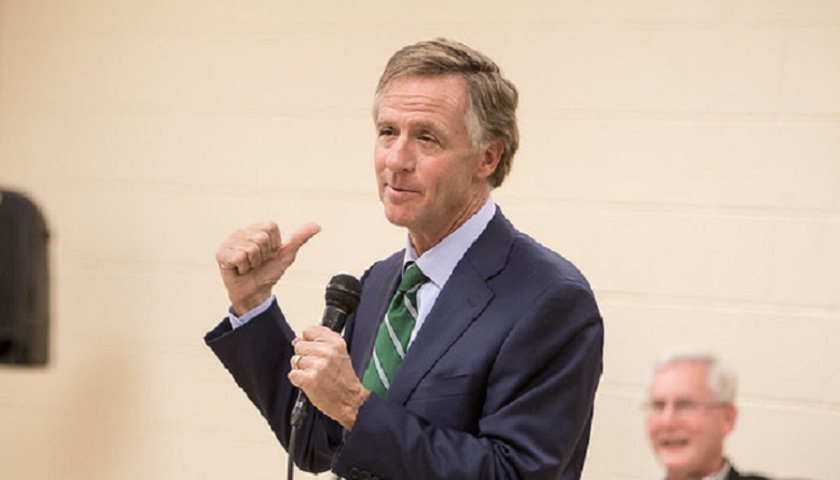



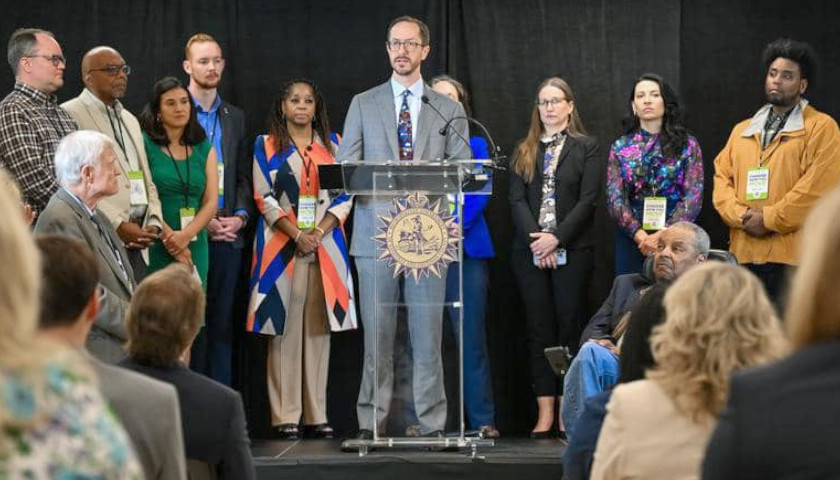
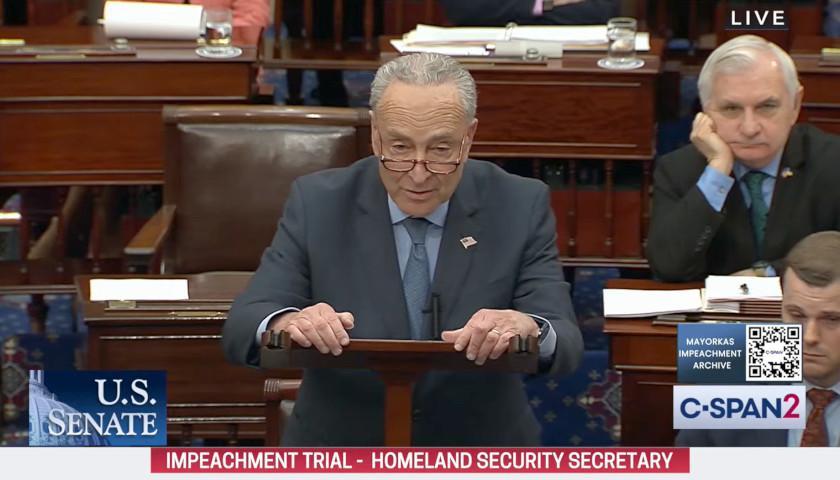
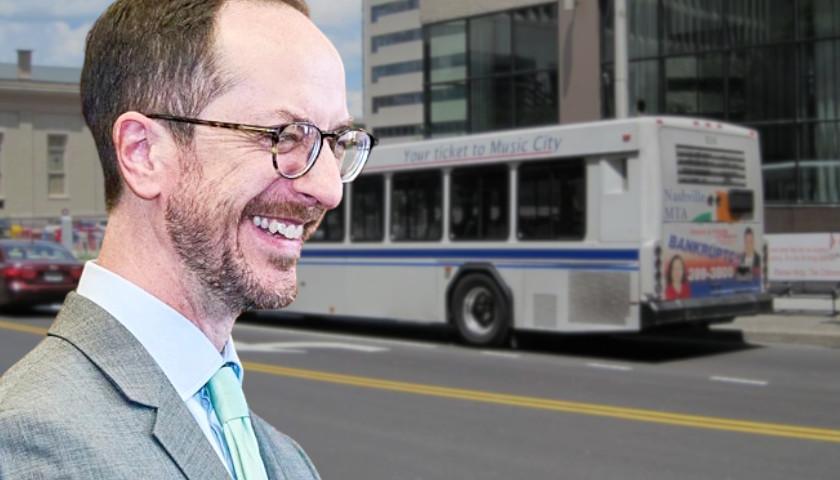
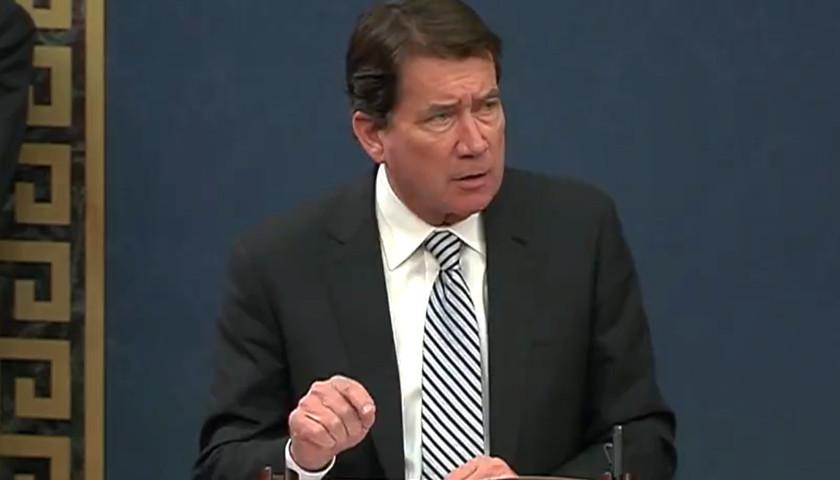
[…] for its author former state Representative David Copeland of Ooltewah,” as The Tennessee Star reported in […]
[…] state’s government in excess of personal income growth required the General Assembly to vote to break the Copeland Cap, a 1978 amendment to Tennessee’s constitution named for its author, former state Representative […]
Has anyone looked the “Future Pension Obligations” of the state within the framework of the budget and future estimations???
Many states are in trouble with their pension funds and don’t report it as a budget item.
[…] agenda was HB 514, as Sargent described it as the “indexing bill” or Copeland Cap bill. The Copeland Cap, a 1978 constitutional amendment that requires a simple majority vote if state appropriations […]
Weighing a constitutional amendment against a gubernatorial decree doesn’t seem like much of a fight–the amendment wins.
At least that’s how I see and understand it.
That a back door of sorts was left open–a simple majority vote by the Assembly–shows the amendment to be disingenuous on its face; political theater. Again, as I understand it.
For my part, I’ll be doing what I can to unseat anyone supporting an override of the amendment in this particular case. Have no desire to hear justification, in this particular case.
What I would like to see is an outside agency perform a forensic accounting in order to inventory where existing gas tax monies have been going for the last ten years or so, assuming that hasn’t already been done.
Let the festivities begin (I suppose).
I noticed the AARP was one of the Lobbyist supporting this. That is a little odd since seniors drawing Social Security didn’t get an increase primarily due to cheap gas prices bringing cost of living down. AARP are not as supportive of senoirs as one would think.
If they go through with this, and violate the Constitution of TN we (the people) need to sue Governor Haslam and the Legislature. It is totally unacceptable. Surely, there is one attorney i the state who would take the case.
None of this matters if we keep electing the same Progressives.
Perhaps its time for a Copeland Schmopeland Amendment from the Administration. Anything to ram this through…
Very interesting how a supposed tax cut results in an 8.3% jump in tax revenue. So, here’s what I gather from Haslamian logic: the longer an elected official spends in Nashville working on the state budget, the worse they become in elementary arithmetic. Haslam spends all his time on the budget, ergo, he has no grasp whatsoever of arithmetic. Or, just forget the math … maybe what these looters and confiscators need is a crash-course in remedial ethics.
So this Wicked Gas Tax will cause a “Yes Vote” on this governor’s budget to violate the Constitution of the State of Tennessee. That puts Tennessee Legislators in the precarious position if violating their Solemn Oath of Office before Almighty God. The Copeland Amendment is in the Constitution for a reason, to stop ANY and ALL lawless politicians from exceeding their Constitutional Boundaries. If Tennessee Legislators vote Yes on this budget from the vicious Haslam, they will have destroyed their given Word “to uphold and defend the Constitution of the State of Tennessee”. They will have breached their Word to the Citizens of the State of Tennessee and they need to be removed from office.
For God & Country